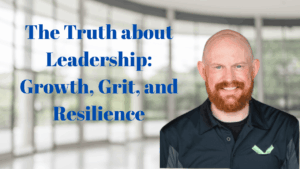
The Centennial Show. Show 100. This one is a special one, bringing together three behemoths in Sales Engineering leadership to speak about Sales Engineering as it is, where it came from, where it’s going, how it’s valuable and how to be better at it. Chris White, Greg Holmes and John Care share their insights in this show you do not want to miss.
What is a Sales Engineer?
Sales Engineer, Solutions Consultant, Solution Advisor, Specialist, Generalist – and many more – there are a lot of names for this role, why is this? And what do they do?
Every nuanced job descri[tion of each of these roles is going to be different from each other, but the essence of each remains the same – to be “The Technical Conscious of the Sales Role”.
Variation in titles and roles can be attributed to ranges and contexts – everything lives on a spectrum nowadays, and there are all sorts of pre-sales roles. Some that are more technical vs. business-oriented, some speaking to high-level executives vs. practical users, some working as generalists vs. as specialists – all comes down to being that trusted advisor in the sales process that ACTUALLY SHOWS the prospect where the value is in the solution being sold.
Has Sales Engineering Changed Over Time?
In a word, yes.
A survey of around 2000 mid-sr level executives conducted by Mastering Technical Sales found what it is that leadership wants to see from the pre-sales teams selling to them.
They want someone who…
- Understands their business.
- Can develop innovative solutions with their staff.
- Clearly and effectively communicates with them.
- Is a trusted advisor that I know will do the right thing for me and my company.
- Has a deep technical understanding of the product.
This has NOT always been the case.
Only 20-30 years ago, having a deep technical knowledge of the product used to be number 1 – oh how things have changed.
Develop your people skills, your sales skills, your business skills – prospects have all of the technical information at their fingertips (via your website, trials, webinars, whitepapers, etc), they need someone who can communicate to them the competitive advantages of your solution.
What about the future of Sales Engineering?
More sales enablement tools are being introduced to allow SEs to allocate more time towards higher value-adding activities. Salespeople are becoming more technical and Sales Engineers are being required to be more business-oriented.
The amount of time during the overall sales cycle (particularly for bigger companies) that is spent on the demo specifically is decreasing; more time is being spent on the relationship building, the discovery, the value delivery – these human elements of the role are going to remain critical skills for the Sales Engineer of the future.
Be a more strategic partner to the Account Executive/Manager – you will know things the sales rep will not – you will also be told things that won’t be told to the sales rep – leverage this knowledge. Be more proactive vs. reactive.
The very best AE / SE Teams are the ones that go see the same prospect but attend different meetings.
How Can Sales Reps and Sales Engineers Understand Each Other Better?
We are wired differently, work on different things, have different skill sets, tastes, and preferences – but we also have to work closely together – how do I reduce tension, increase collaboration and overall provide a better environment for all?
Conduct training together – have each side understand what the other side goes through.
Understand that the technical buying process doesn’t necessarily take place at the same time as the normal selling process. Every customer will evaluate solutions differently.
Community Questions:
How can SEs measure and show their individual value during the sales process?
It is best looked at from an organizational perspective.
SEs are considered HIGHLY valuable by prospect buying teams – leadership needs to consider the impact on sales if the SE team all walked out – or even if the top SE walked out.
Measuring on the individual level can get messy.
Measuring your activity is one way to quantify your results but you also can’t always equate results with value.
However, it is important to be able to give people an incentive to strive for as a team while having mechanisms in place for individual improvement.
What’s most rewarding between being an individual contributor vs. a manager?
Different people will want different things.
If you get satisfaction from being that trusted advisor, being the subject matter expert, getting the individual glory – then being an individual contributor is likely best.
If you get satisfaction from building teams, developing those around you to be better than yourself, seeing others on your team bask in the limelight, then being a manager is likely best.
The best individual contributors will likely make more than their managers – but managers will be able to have a wider view of the organization and its direction.
Interesting point: The skills required to be a good SE Manager aren’t always the same skills required to be a good SE. In contrast, a good Sales Manager typically requires the same skills required to be a good Sales Rep.
From John Care:
The 3 Rules of SE Management:
- Develop your people.
- Run Pre-Sales like a business.
- Delight and serve your customers.
Layered over all of that is Manage Yourself.
Nowhere does it say: “hit your number”. Only by doing those 3+1 things exceptionally well will you hit your number.
Who Owns The Relationship?
Neither the SE nor the Sales Rep. The Team owns the relationship.
If you want to change the culture to have a more collaborative relationship with your sales rep(s), be the change you want to see. Suggest what you think is best, be proactive. If a rep insists to be there with you, then spend the time to take in the room – observe dynamics.
Overall in all that you do, go out there and cast a big shadow.
Some more links from the show:



